If you love Broadway music, you’ve come to the right place. This article presents a comprehensive Broadway music list covering top 50 must-hear songs from classic to modern musicals. Expect to find iconic numbers, modern favorites, timeless classics, and even some underrated gems. Dive in to discover what makes Broadway so special and relive the magic of its unforgettable songs.
Table of Contents
Key Takeaways
Broadway’s best hits have left a lasting legacy, with songs like ‘Defying Gravity’ and ‘Seasons of Love’ showcasing powerful themes of empowerment, love, and nostalgia.
Modern Broadway has introduced fresh favorites, blending various music styles with relatable storytelling, exemplified by hits like ‘My Shot’ from ‘Hamilton’ and ‘Waving Through a Window’ from ‘Dear Evan Hansen.’
Classic and newer Broadway songs continue to resonate with audiences, celebrating timeless themes while introducing unique narratives, as seen in both iconic pieces and underrated gems.
Broadway’s Best Hits
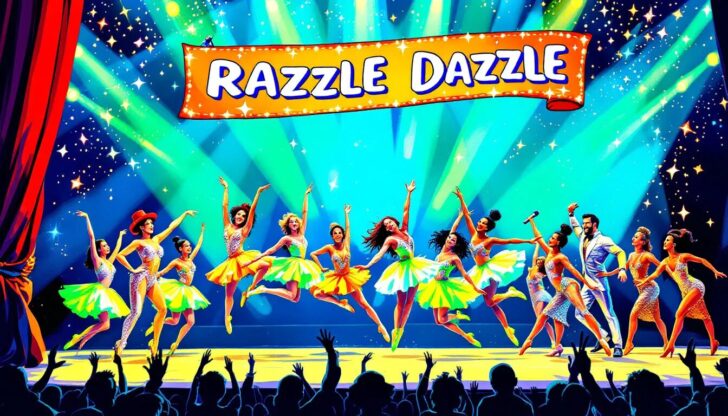
Broadway’s best hits are timeless treasures that continue to captivate audiences year after year. These songs have become part of our cultural fabric, celebrated for their powerful lyrics, memorable melodies, and the emotions they evoke. The golden age of Broadway, in particular, has produced some of the most enduring and influential musical theater pieces, leaving a lasting legacy in show business. ‘The Music Man,’ since its debut in 1957, is a prime example, with its cast album topping the charts for months and tracks like ‘Ya Got Trouble’ reflecting the storyline of a con man bringing chaos to a small town. Its freeform lyrics have even been likened to modern rap, showcasing its influence on musical theatre.
From the soaring anthem of “Defying Gravity” to the poignant reflections in “Memory,” these songs define the essence of musical theater. Here, we highlight iconic Broadway songs that have earned critical acclaim and continue to inspire both performers and audiences. This list includes only songs written specifically for Broadway and Off-Broadway productions.
Defying Gravity (from Wicked)
“Defying Gravity” from the Broadway musical Wicked is a powerful anthem of empowerment and self-acceptance. This song marks a turning point for the character Elphaba as she embraces her uniqueness and refuses to conform to societal expectations. Its soaring melody and unforgettable lyrics make it one of the most iconic Broadway songs, often celebrated for inspiring audiences to pursue their aspirations.
The song’s lasting popularity is evident in its numerous covers and performances across various platforms, solidifying its place in musical theater history.
Seasons of Love (from Rent)
“Seasons of Love” from Rent is a poignant reflection on how we measure the moments that truly matter in life. This beloved song emphasizes that love is the most valuable metric, posing the question of how to measure a year in life.
With its heartfelt chorus and universal message, “Seasons of Love” has become an enduring anthem that resonates with audiences around the world, reinforcing the importance of love and meaningful connections.
Memory (from Cats)
“Memory” from Cats is a hauntingly beautiful song that captures the themes of nostalgia and the longing for acceptance. Sung by the character Grizabella, this song is a defining moment in the musical, showcasing her desperate yearning to be part of the community once again.
“Memory” has left a lasting impact on musical theater, becoming one of the most famous songs and a staple in the repertoire of Broadway performers.
The Music of the Night (from The Phantom of the Opera)
“The Music of the Night” from The Phantom of the Opera is a mesmerizing ballad that draws audiences into the enigmatic world of the Phantom. As part of the longest-running Broadway show, this song captures the allure and mystery of the Phantom’s character, performed by Michael Crawford in the original Broadway cast, reminiscent of night music and a little night music.
The Phantom’s haunting melody and the song’s enchanting lyrics have made it a timeless piece in musical theater, leaving audiences spellbound.
One Day More (from Les Miserables)
“One Day More” from Les Miserables is a powerful ensemble number that brings together the hopes and aspirations of the characters on the brink of revolution. This song captures the emotional climax of the musical, resonating with themes of struggle, hope, and resilience.
As one of the most popular songs in Les Miserables, “One Day More” continues to captivate audiences, emphasizing the enduring legacy of this iconic Broadway musical.
Modern Broadway Favorites
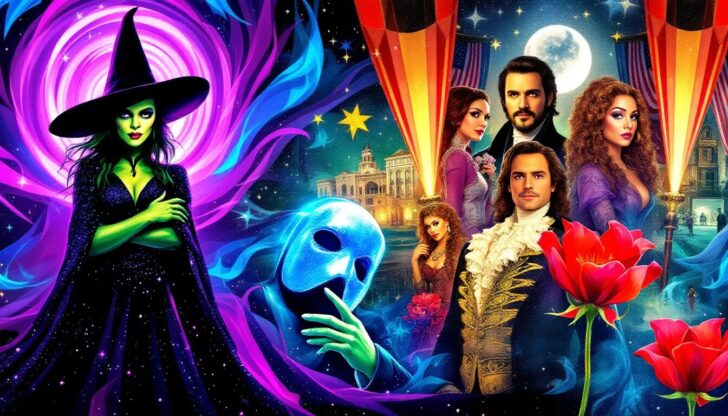
Modern Broadway musicals have redefined the genre, blending contemporary music styles with compelling storytelling. These shows often incorporate elements of pop culture and modern themes, appealing to a broader audience and earning critical acclaim. From the groundbreaking hip-hop rhythms of Hamilton to the heartfelt ballads of Dear Evan Hansen, modern Broadway favorites have made a significant impact on the musical theater landscape.
In this section, we’ll delve into some of the best Broadway songs from recent years, exploring how these contemporary hits have resonated with audiences and brought fresh energy to the stage.
My Shot (from Hamilton)
“My Shot” from Hamilton is an anthem of ambition and resilience, capturing Alexander Hamilton’s determination to seize every opportunity. Lin-Manuel Miranda’s masterful blend of rap and melody highlights Hamilton’s revolutionary spirit and his unapologetic pursuit of success.
This song has become a cultural touchstone, inspiring audiences with its message of not throwing away their shot and reflecting the spirit of contemporary activism.
Waving Through a Window (from Dear Evan Hansen)
“Waving Through a Window” from Dear Evan Hansen is a deeply emotional song that delves into themes of mental health and the need for connection. Since its Broadway debut in 2016, Dear Evan Hansen has touched audiences with its raw and relatable portrayal of a young man’s struggle to belong.
The song’s poignant lyrics and haunting melody have made it a standout piece in modern musical theater, resonating with listeners around the world.
Wait for Me (from Hadestown)
“Wait for Me” from Hadestown is a hauntingly beautiful song that conveys themes of longing and hope amidst uncertainty. This modern retelling of the Orpheus and Eurydice myth blends folk and jazz music to create a unique and captivating sound.
“Wait for Me” has become an iconic piece in contemporary Broadway, leaving audiences enthralled with its emotional depth and stunning musical composition.
You Can’t Stop the Beat (from Hairspray)
“You Can’t Stop the Beat” from Hairspray is a vibrant and upbeat song that encapsulates the joyous spirit of the musical. Since its debut on Broadway in 2002, this song has celebrated inclusivity and the joy of dancing, becoming a beloved anthem for many.
Its infectious energy and lively choreography make it a highlight of the show, bringing audiences to their feet and leaving them with a lasting sense of happiness.
She Used to Be Mine (from Waitress)
“She Used to Be Mine” from Waitress is a heartfelt ballad that reflects on personal growth and the journey of self-acceptance. This song offers a raw and honest portrayal of the character’s struggles and triumphs, resonating deeply with audiences.
Its emotional lyrics and poignant melody make it a standout piece in contemporary Broadway, capturing the essence of the character’s transformation and resilience.
Classic Broadway Tunes
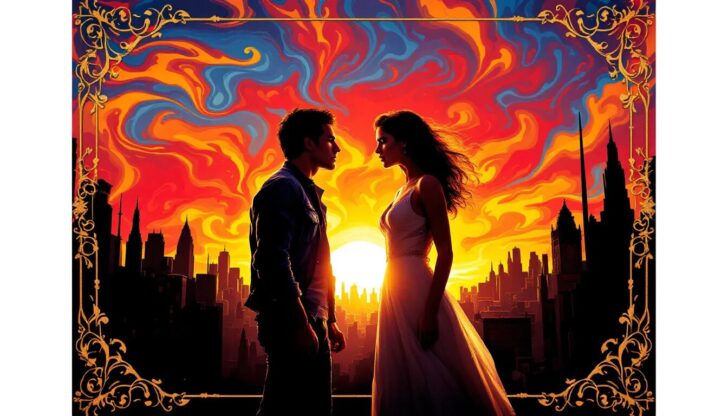
Classic Broadway tunes have shaped the genre, providing a foundation for musical theater as we know it today. These timeless songs continue to be celebrated for their memorable melodies, captivating lyrics, and the stories they tell. From the enchanting ballads of South Pacific to the vibrant numbers of West Side Story, these classics have left an indelible mark on Broadway history.
One such classic is ‘Funny Girl,’ known for its original cast album that showcases Barbra Streisand’s powerful performances. The musical’s impact is particularly evident in the song ‘Don’t Rain on My Parade,’ which serves as a rallying anthem of female empowerment and reflects the character Fanny Brice’s determination amid personal challenges.
Another influential musical is ‘Girl Crazy’ from 1930, which significantly impacted Broadway with songs like ‘I Got Rhythm.’ The plot revolves around a group of New York entertainers, and Gershwin’s work from this show paved the way for future musical compositions.
In this section, we’ll revisit some of the most iconic songs from classic Broadway musicals, exploring their themes and enduring appeal.
Some Enchanted Evening (from South Pacific)
“Some Enchanted Evening” from South Pacific is a classic ballad that captures the themes of love and longing. Composed by Richard Rodgers with lyrics by Oscar Hammerstein II, this song marks a pivotal moment in the musical, encapsulating the romance and emotional depth of the story.
Since its debut in 1949, “Some Enchanted Evening” has achieved significant cultural recognition, being performed in numerous revivals and adaptations.
I Could Have Danced All Night (from My Fair Lady)
“I Could Have Danced All Night” from My Fair Lady is one of the most beloved songs from the musical, known for its enchanting melody and heartfelt lyrics. This song embodies Eliza Doolittle’s transformation, expressing her newfound joy and freedom after her speech lessons.
Its iconic status in Broadway history is a testament to its cultural influence and the joy it continues to bring to audiences.
If I Were a Rich Man (from Fiddler on the Roof)
“If I Were a Rich Man” from Fiddler on the Roof is a song that expresses the longing for wealth and the impossible dream of how life would change with money. Performed by the character Tevye, this song reflects on the contrasts between his current life and the lavish lifestyle of the wealthy.
Its catchy melody and poignant lyrics resonate with audiences about aspirations and the nature of happiness.
There’s No Business Like Show Business (from Annie Get Your Gun)
“There’s No Business Like Show Business” from Annie Get Your Gun is a celebration of the entertainment industry and the unique experiences of performers. Composed by Irving Berlin, this song became an anthem for show business, highlighting the allure and challenges of life on stage.
With over 1,100 performances on Broadway, Annie Get Your Gun solidified its place in musical theater history, and “There’s No Business Like Show Business” remains a defining piece.
Tonight (from West Side Story)
“Tonight” from West Side Story is a pivotal number that encapsulates the anticipation and excitement of love amidst the turmoil of rival gangs. The collaboration of Leonard Bernstein, Stephen Sondheim, Jerome Robbins, and Arthur Laurents brought this iconic song to life, intertwining themes of love and longing.
Since its premiere in 1957, West Side Story has been celebrated for its innovative blend of classical and contemporary elements, with “Tonight” remaining a standout piece.
Legendary Composers
Stephen Sondheim
Stephen Sondheim is a towering figure in the world of musical theater, renowned for his innovative approach to composition and lyricism. Born in New York City on March 22, 1930, Sondheim’s career began in the 1950s when he penned the lyrics for “West Side Story,” a groundbreaking musical that redefined the genre. His collaboration on “Gypsy” further cemented his reputation as a master lyricist. However, it was his transition to composing his own music that truly showcased his genius.
Sondheim’s works, such as “Company,” “Follies,” and “Sweeney Todd,” are celebrated for their complex harmonies, intricate lyrics, and exploration of darker themes. His ability to blend sophisticated musical structures with deeply human stories has made him a beloved and influential figure in musical theater. Sondheim’s contributions have not only enriched the Broadway repertoire but have also inspired countless artists and composers.
Andrew Lloyd Webber
Andrew Lloyd Webber, born on March 22, 1948, in London, is a name synonymous with musical theater grandeur. With a career spanning over five decades, Webber has created some of the most memorable and enduring musicals in history. His early work in the 1960s included composing for films and television, but it was his foray into musical theater that brought him international acclaim.
Webber’s iconic shows, such as “Jesus Christ Superstar,” “Evita,” and “The Phantom of the Opera,” are known for their sweeping melodies, dramatic narratives, and lavish productions. “Jesus Christ Superstar” introduced rock opera to the stage, while “The Phantom of the Opera” became one of the longest-running shows on Broadway, captivating audiences with its haunting music and opulent sets. Webber’s ability to craft unforgettable tunes and compelling stories has earned him numerous awards, including multiple Tonys and an Academy Award, solidifying his legacy in musical theater.
Rodgers and Hammerstein
The dynamic duo of Richard Rodgers and Oscar Hammerstein II revolutionized musical theater in the mid-20th century with their groundbreaking collaborations. Born in 1902 and 1895, respectively, Rodgers and Hammerstein brought a new level of sophistication and storytelling to the stage. Their partnership began with “Oklahoma!” in 1943, a musical that seamlessly integrated song, dance, and narrative, setting a new standard for the genre.
Their subsequent works, including “South Pacific” and “The Sound of Music,” continued to push the boundaries of musical theater. Known for their catchy melodies, witty lyrics, and innovative storytelling, Rodgers and Hammerstein’s musicals often tackled social issues and human emotions with depth and sensitivity. Their contributions have left an indelible mark on musical theater, influencing generations of composers and playwrights.
Iconic Musicals
The Phantom of the Opera
“The Phantom of the Opera,” composed by Andrew Lloyd Webber, is a timeless masterpiece that has captivated audiences since its premiere in London’s West End in 1986. Based on Gaston Leroux’s novel, the musical tells the haunting story of a deformed musical genius who becomes infatuated with Christine, a beautiful soprano. His obsession leads to a series of dramatic and tragic events that unfold in the opulent setting of the Paris Opera House.
The show’s grand music, including the iconic title song “The Phantom of the Opera,” and its opulent sets have made it a beloved classic. The original cast album, featuring Michael Crawford and Sarah Brightman, remains one of the best-selling cast recordings of all time. With its themes of love, obsession, and redemption, “The Phantom of the Opera” continues to enchant audiences worldwide, solidifying its place as one of the most iconic musicals in Broadway history.
Jukebox Musicals: Hits Reimagined
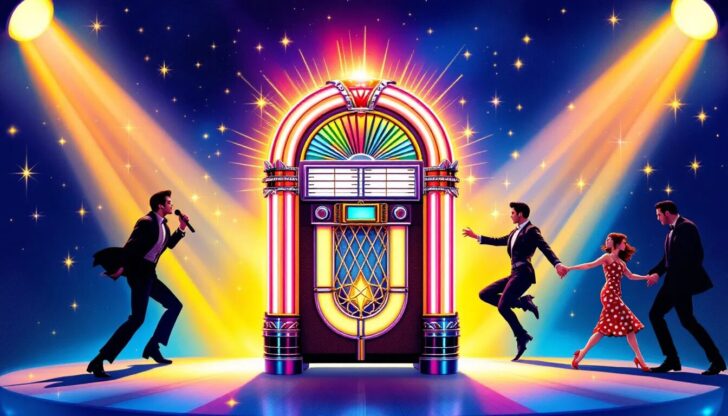
Jukebox musicals have breathed new life into familiar songs, reimagining them within fresh narratives that captivate audiences. These musicals integrate popular songs into theatrical contexts, letting us experience beloved hits through storytelling, revitalizing classics and introducing them to new generations. From the nostalgic tunes of Mamma Mia! to the rock anthems of Rock of Ages, jukebox musicals have become a beloved subgenre in Broadway.
We examine how some popular songs have been reinterpreted in jukebox musicals, creating unforgettable theater experiences that blend music and narrative.
Dancing Queen (from Mamma Mia!)
“Dancing Queen” from Mamma Mia! brings ABBA’s iconic music to the stage, contributing to the show’s charm and nostalgia. This song is a highlight of the musical, featuring lively choreography and vibrant staging that engage the audience.
The joy and nostalgia associated with “Dancing Queen” resonate with audiences, making it a memorable part of the Mamma Mia! experience.
Sherry (from Jersey Boys)
“Sherry” from Jersey Boys showcases the rise to fame of The Four Seasons, highlighting the complexities of their relationships and careers. This song captures the essence of the group’s journey, blending their signature sound with the narrative of the musical.
As a key piece in Jersey Boys, “Sherry” brings the energy and emotion of the band’s story to life on stage.
I Will Always Love You (from The Bodyguard)
“I Will Always Love You” from The Bodyguard, originally written and recorded by Dolly Parton, was immortalized by Whitney Houston and brings emotional depth to the musical adaptation. This song, highlighting themes of love and sacrifice, showcases the powerful vocal delivery that has made it an enduring classic.
Its inclusion in The Bodyguard musical adds a poignant layer to the story, resonating deeply with audiences.
Don’t Stop Believin’ (from Rock of Ages)
“Don’t Stop Believin’” from Rock of Ages has transcended its rock roots to become an anthem on Broadway. Originally by Journey, this song’s powerful chorus and uplifting melody make it a staple in the jukebox musical genre, drawing in diverse audiences.
Its revival in Rock of Ages intertwines popular culture with narrative, cementing its status as a classic that continues to inspire.
You Learn (from Jagged Little Pill)
“You Learn” from Jagged Little Pill celebrates personal growth and resilience, encouraging listeners to embrace challenges as opportunities for growth. Drawing from Alanis Morissette’s iconic 1995 album, this song delves into emotional struggles and hardships, ultimately delivering a message of hope and strength.
Underrated Gems
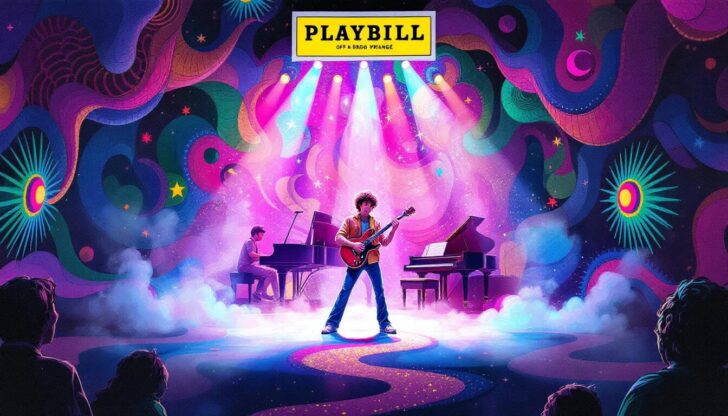
While some Broadway songs achieve widespread fame, others remain hidden gems that deserve more recognition. These lesser-known pieces offer remarkable themes, emotional depth, and musical brilliance, showcasing the diversity and richness of Broadway’s repertoire. From the introspective “Finishing the Hat” to the raw emotion of “I’m Breaking Down,” these songs capture the essence of musical theater with their unique storytelling.
Here, we spotlight some underrated gems, exploring their impact and why they deserve recognition.
Finishing the Hat (from Sunday in the Park with George)
“Finishing the Hat” from Sunday in the Park with George is a poignant song that delves into the themes of artistic creation and dedication. This song reflects the protagonist’s commitment to his art, capturing the struggles and triumphs of the creative process.
Its introspective lyrics and beautiful melody make it a standout piece that resonates with artists and audiences alike.
I’m Breaking Down (from Falsettos)
“I’m Breaking Down” from Falsettos is a powerful solo that showcases the emotional vulnerability of the character Mendel. This song highlights his struggles with relationships and personal identity, making it a deeply emotional performance.
Themes of anxiety, frustration, and the experience of a breakdown resonate throughout the song, inviting audiences to connect with Mendel’s journey.
The Room Where It Happens (from Hamilton)
“The Room Where It Happens” from Hamilton captures the essence of political maneuvering and decision-making in the early United States. This song combines elements of hip-hop and R&B, with a catchy chorus that embodies the tension and power dynamics between the characters involved.
Its themes of inclusion and the consequences of agreements made behind closed doors resonate with audiences, making it a pivotal moment in the musical.
Gimme Gimme (from Thoroughly Modern Millie)
“Gimme Gimme” from Thoroughly Modern Millie expresses a deep yearning for love and connection, showcasing the central theme of the pursuit of dreams and desires. This song highlights the character’s emotional journey, transitioning from individual aspirations to seeking companionship.
Often regarded as a show-stopping number, “Gimme Gimme” leaves a memorable impact on audiences with its powerful performance.
How Glory Goes (from Floyd Collins)
“How Glory Goes” from Floyd Collins reflects deep themes of fame, sacrifice, and the ephemeral nature of glory. Characters in the musical express varied and poignant views on what glory means to them, highlighting personal stories and conflicts.
Musically, the song features haunting melodies and intricate harmonies that amplify its emotional weight, making it a significant piece in the narrative.
Show-Stopping Solos
Show-stopping solos are the heart of many Broadway musicals, offering performers a chance to shine and leaving audiences in awe. These powerful performances illustrate character development and emotional depth, often becoming defining moments in the shows they originate from. From the transformative “Defying Gravity” to the raw emotion of “I’m Breaking Down,” these solos capture the essence of Broadway’s ability to tell compelling stories through music.
We explore some of the most iconic show-stopping solos, celebrating their impact and the unforgettable performances that have marked musical theater history.
Rose’s Turn (from Gypsy)
“Rose’s Turn” from Gypsy is a powerful solo that portrays the ambition and struggles of Mama Rose, a stage mother determined to make her daughters stars. Ethel Merman’s iconic performance of this song became a defining moment in the musical, highlighting the world of backstage performance and the pursuit of fame.
Gypsy remains a celebrated musical, with “Rose’s Turn” capturing the complexity and drive of its central character.
And I Am Telling You I’m Not Going (from Dreamgirls)
“And I Am Telling You I’m Not Going” from Dreamgirls is a tour-de-force performance by the character Effie White, expressing her defiance and love towards her manager, Curtis. Jennifer Holliday’s original portrayal of Effie earned her a Tony Award, showcasing the song’s emotional power and impact.
This song remains one of the most iconic solos in Broadway history, resonating with audiences for its raw intensity.
Being Alive (from Company)
“Being Alive” from Company is a poignant solo that encapsulates the desire for connection and emotional intimacy. The lyrics emphasize the struggles of being vulnerable and the importance of accepting love and companionship, serving as a climactic moment for the protagonist.
“Being Alive” stands as an iconic piece in Broadway history, resonating with audiences for its raw expression of the human condition.
The Wizard and I (from Wicked)
“The Wizard and I” from Wicked is performed by Elphaba as she expresses her dreams upon meeting the Wizard, laying the groundwork for her character’s journey. This song encapsulates Elphaba’s aspirations, hope, and desire for acceptance, resonating with the overarching themes of power and identity in the musical.
“The Wizard and I” sets the tone for the relationship between Elphaba and the Wizard, foreshadowing her subsequent challenges and transformations.
What I Did for Love (from A Chorus Line)
“What I Did for Love” from A Chorus Line addresses the sacrifices made for love and the emotional cost of pursuing a career in the performing arts. This poignant song reflects on the struggles and challenges that accompany both love and ambition within the competitive nature of musical theater.
“What I Did for Love” resonates with audiences by highlighting the heartache and dedication involved in following one’s dreams.
Ensemble Numbers
Ensemble numbers are essential in Broadway for showcasing the collective talent of the cast and often addressing central themes of the performance. These songs bring together multiple characters, weaving their individual stories into a cohesive narrative that highlights the show’s overarching message. From the revolutionary spirit of “Do You Hear the People Sing?” to the celebration of bohemian life in “La Vie Boheme,” ensemble numbers create powerful and memorable moments on stage.
We explore some of the most iconic ensemble numbers, celebrating their impact and how they bring the cast recording together to tell compelling stories.
Do You Hear the People Sing? (from Les Miserables)
“Do You Hear the People Sing?” from Les Miserables serves as an anthem for the struggle for freedom, representing the collective voice of the oppressed. This powerful ensemble number encapsulates the revolutionary spirit of early 19th century France and the fight against tyranny, resonating with themes of hope, resistance, and justice.
Its roots tie back to the historical uprisings that inspired Victor Hugo’s narrative, making it a timeless piece.
La Vie Boheme (from Rent)
“La Vie Boheme” from Rent is a vibrant celebration of bohemian life in the 1980s, showcasing a spirit of liberation and creativity. This ensemble number features a rich tapestry of cultural references and personal inspirations, reflecting the diverse experiences of the characters.
Ultimately, “La Vie Boheme” captures the essence of community and rebellion, resonating strongly with audiences then and now.
Tradition (from Fiddler on the Roof)
“Tradition” from Fiddler on the Roof explores the customs and routines of Tevye’s family, highlighting the significance of cultural values and familial expectations. This song introduces the central theme of the musical, showcasing the importance of traditions within family and community life, and the universal struggle between old and new.
The themes of “Tradition” resonate with audiences, making it a defining moment in the musical.
Circle of Life (from The Lion King)
“Circle of Life” from The Lion King is a powerful ensemble number that portrays the cycle of life and continuity. Recognized as one of Disney’s best Broadway ventures, The Lion King features this iconic song, which sets the tone for the entire show and captures the essence of the natural world and the interconnectedness of all living things.
Willkommen (from Cabaret)
“Willkommen” from Cabaret serves as the opening number and sets the tone for the entire show. This song introduces themes of hedonism, decadence, and the contrast between the vibrant nightlife and the underlying darkness of pre-war Berlin.
With its cabaret-style musical arrangement, “Willkommen” leaves a lasting impact on audiences, blending jazz influences with theatrical narrative.
Checkout Best Broadway Songs of All-Time: The Complete List
Summary
Broadway’s rich history and diverse repertoire offer a treasure trove of musical experiences, from timeless classics to contemporary hits. We’ve journeyed through the most iconic Broadway songs, celebrated modern favorites, revisited classic tunes, explored jukebox musicals, uncovered underrated gems, and spotlighted show-stopping solos. Each song tells a unique story, capturing the essence of musical theater and the emotions that resonate with audiences.
As we conclude this exploration, it’s clear that Broadway songs hold a special place in our hearts, transcending time and generations. Whether you’re a lifelong fan or new to the world of musical theater, these songs offer a glimpse into the magic of Broadway, where every note and lyric is a testament to the power of storytelling through music. Let these melodies inspire you, and may the spirit of Broadway continue to enchant and uplift us all.
Frequently Asked Questions
What makes a Broadway song iconic?
An iconic Broadway song stands out due to its unforgettable melody, impactful lyrics, and the deep emotions it evokes, creating a memorable experience that resonates with audiences.
How have modern Broadway musicals redefined the genre?
Modern Broadway musicals have redefined the genre by blending contemporary music styles and pop culture references, making them more relatable and appealing to a wider audience. This shift has led to both critical acclaim and a fresh energy on stage.
What is a jukebox musical?
A jukebox musical brings together popular songs to create a new story, letting you enjoy familiar tunes in a fresh way. Think of shows like Mamma Mia! and Rock of Ages that brilliantly combine music and narrative.
Why are some Broadway songs considered underrated gems?
Some Broadway songs are considered underrated gems because they showcase incredible themes and emotional depth that often go unnoticed, yet they truly deserve more spotlight in musical theater. These hidden treasures can evoke powerful feelings and connect with audiences in unique ways.
What is the significance of ensemble numbers in Broadway musicals?
Ensemble numbers are super important because they highlight the entire cast’s talent and help tell the story by blending individual experiences into a unified theme. They create those unforgettable moments that truly elevate the performance.









